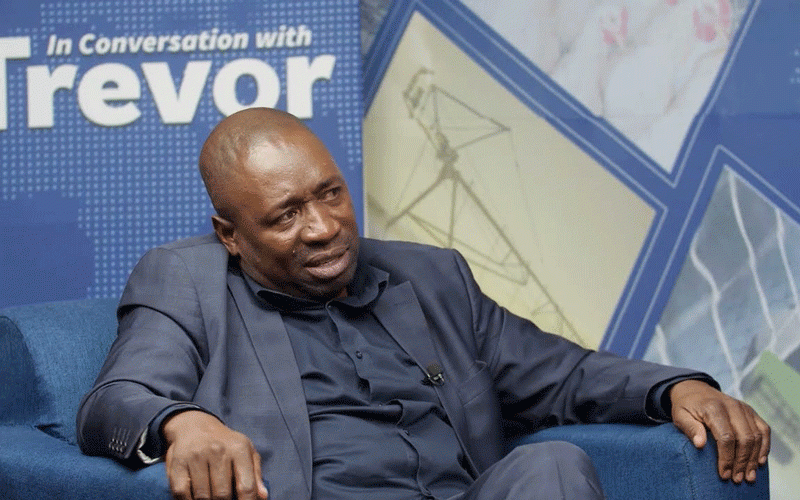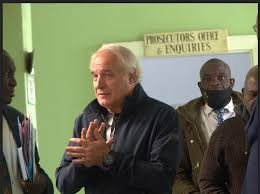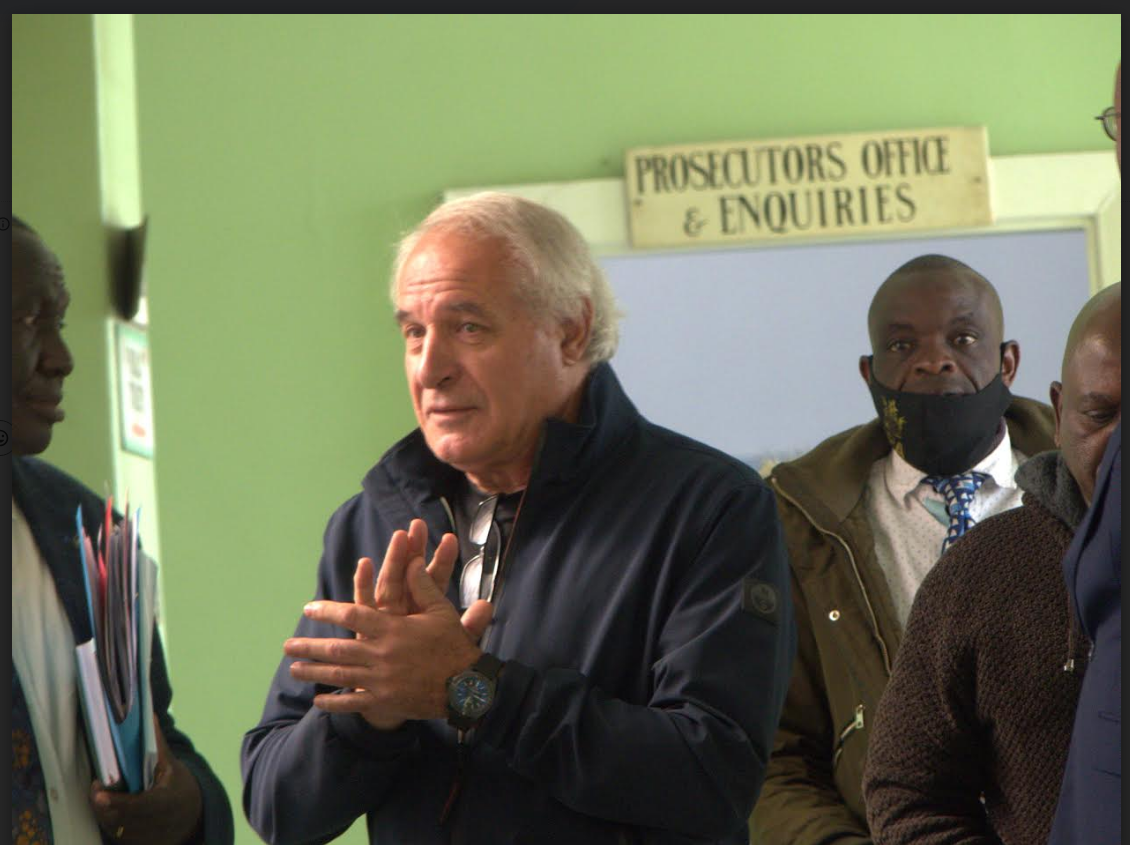
Top human resources consultant and entrepreneur Memory Nguwi (MN) sees nothing wrong with changing one’s mind if the circumstances have changed.
Nguwi, who boasts extensive experience in strategic planning and human resources management, explained that there was a science behind goals when he appeared on the platform In Conversation with Trevor hosted by Alpha Media Holdings chairman Trevor Ncube (TN).
Below are excerpts from the interview.
TN: Welcome to In Conversation with Trevor brought to you by Heart and Soul Broadcasting Services. Today I’m in conversation with Memo Nguwi, a registered and licensed occupational psychologist and human resource consultant. What’s your take around the New Year’s resolutions?
MN: New Year resolutions, strategic planning, and it’s all about the concept of goal setting. It’s a well-studied concept in psychology. And the reason why most people fail is the structure of the goal that has been set. There is a science behind goals. The science is that the goal must be challenging and achievable. And also remember when you say challenging and achievable, we’re assuming the person has got the capacity. There are goals that people set when they actually don’t have the capacity to do those kinds of goals. So that’s key, to understand that there is a science behind the goals. We count that as success. People talk about how many kilometers they’ve walked today. It’s not really about that. It’s more about how many goals do you have, Are they challenging enough, are they the right goals.
I was reading last night about goals, and one of the things that they found is that most of the people spend a lot of time working on the wrong goals, yet the circumstances have changed so much that the goal is no longer relevant.
That’s why people die when they go to climb Mount Everest. People stick to a particular goal that is actually no longer relevant, or that should not be achieved in that particular context at that time, simply because they don’t want to go back and say, no, no, I’ve actually changed. Think again. Yes, think again.
Think again. People must reflect. There’s nothing wrong with changing your mind if the circumstances have changed. I can come here and tell you this is what I want to do. Five minutes later, new information has come in, and I’ll change my mind, and it’s perfectly fine.
- Masunda lands global sugar industry position
- In Conversation with Trevor: Chisamba: Let’s be proud of ourselves
- In Conversation with Trevor : How car crash changed my life
- In Conversation With Trevor: ‘We lost our humanity’
Keep Reading
TN: If you’re changing your mind from time to time, there’s a negativity label that is associated with that. And in my own experience, I mean, last time when you were here, you recommended, I think, five books. I bought four of them. I’ve read three of them. Each one of those has changed me. Each one of those has made me change one or two things about my life. So I change my mind when the effects change. And yet, the society that we live in assumes that when you change your mind, there’s something wrong with you. Talk to me about that.
MN: Yeah, so let’s start with a few examples. I’m sure you’ve noticed that even kids, when they go to A-level, for example, someone goes to A-level, and they choose the Sciences. First week, second week, they find it’s very tough. But most of the time, there’s an opportunity to change. But they don’t want to, because they’ve already set a bar. People are very difficult to change when they make a commitment in terms of changing their mind.
They think they must keep going, even if it doesn’t help them. But the key issue around that is it boils down to who you are as an individual. If you have noticed, if you go back to science, you’ll notice that there’s a certain type of personality that will always succeed and there’s a certain type of personality that will always fail.
TN: What personality always succeeds?
MN: So if you look at the personality traits, even if you look at the big five, there’s one that is found in every successful person, conscientiousness. Remember, the South African minister who struggled with that, conscientiousness. That is the trait. In the working environment, just look around, even where you are. There are people, when you give them a task, it will be done, and they will feed back to you. You know it’s done every time and again. Then there are others where you have to follow up, you have to send a message, you have to send a call and remind and the responses that you get from such kind of people, it’s under control, it’s in progress. They’re defensive. So those are the kind of people that most of the time they fail. Regardless of how intelligent you are, if you don’t have that trait, you’ll fail. You can look at studies, entrepreneurs, whoever, as long as that trait is weak in you, you would need a lot of people to push you.
There are some studies that are trying to say, yes, you can try to change someone’s personality, but the effect is marginal. And probably not even worth it in terms of the investment, in terms of resources.
Some of the things are situational. If you go to a wedding, you’ve got to change the behaviour obviously to mirror what is happening there. But the core Trevor does not change.
It’s like me saying to you, Trevor, can you write your signature? You write your signature. And they say, use the other hand to write the same signature. You struggle. That’s why people relapse to their normal self whenever they get an opportunity. An aggressive person will always relapse to being aggressive. They definitely moderate in certain situations.
TN: So going back to setting the New Year resolutions, you are essentially saying you got to recognise the fact that there are certain things that you can’t change about yourself. So if you want the new me, sort of the New Year and the new me, what advice would you give to people?
MN: The first thing you must say to yourself is, what are those things that I can do? The can do is key. Can means you’ve got the aptitude and the capability to do so? There’s someone who says, okay, they’re weighing 150kg and they want to run 10 kilometres every day. It’s impossible. If you go and set your goals in a more positive way, they must be realistic and achievable, but more importantly, they must be within the capacity that we have.
Don’t set goals in a way to please people. You know, most of the goals, when you go, even the New Year’s resolution, we’ve had discussions elsewhere where someone says, I can tell immediately this one, I will just give you two weeks, we will abandon it. And I’ve seen people who have actually done exactly that because they’re too ambitious. They’ve no capacity to do what they want. It’s not for themselves, it’s for somebody else. They’re setting it for other people.
So my belief, and push back on this as much as possible, is 20 years ago, I realised that New Year’s resolutions are just a gimmick. I now set life goals, and interestingly, like I said, I tend to be an extremist and idealist when it comes to that.
I’ve got a personal mission statement that I wrote 2005, thereabouts, that basically maps who I am and where I’m going.
My life goals are linked to that mission statement. And I am building my life.
I am building things. I’m building the family, I’m building the business. That’s what I’m looking at.
TN: What’s your sense around life goals versus New Year’s resolution?
MN: With life goals, you’ll find that the success rate is a bit higher. Most of the time, if you check, even if you look at the research, people who want to set New Year goals, most of them, are very low conscious, they want quick wins, immediately. They can’t delay gratification. They want things to happen tomorrow. In some cases, some people abandon it within two days.
So if you go back, in whatever sphere of life, there are two things that will make a difference in your life, whether you succeed or not. There will be other factors.
The first one is who you are as an individual. In psychology, we study what are called individual differences.
TN: Are you talking about values, principles? What are you talking about?
MN: I’m talking about your personality as an individual. Remember, personality is largely a radiator in the part of the childhood experience. So we would estimate about 80% of who you are largely a redactor. In the part of the childhood experience, how you were raised, the 20%, were you in an environment that encouraged people to work hard. Were you in an environment where your parents and the people that you lived with set goals and things like that? That shapes you as an individual.
That’s the 20%. Then the second is God gave everyone something to put in their brain. But we are not gifted the same. Gifts are different. There are some who are very good at analysis. There are some who are very good communicators. There are some who are very good at physical work and things like that. Know yourself. Who am I? In terms of what can I do? I know people disagree with me when I say passion. You don’t choose a career on the basis of passion alone. You choose a career on the basis of passion and what you can do. It’s the same thing that you see in employment. People hire people who have no capacity for the role. Then they spend the rest of their work life trying to correct those same people.










